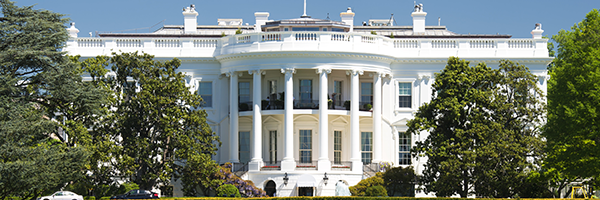On a day when Federal Reserve chair Jerome Powell warned that the U.S. economy recovery, while faster than expected, could stall if Congress didn’t pass new fiscal stimulus measures to make up for the effects of the coronavirus pandemic, on Twitter President Donald Trump urged legislators to pass a massive stimulus bill with numbers much higher than in the $300 billion bill proposed by the Republican Senate.
How much larger? No one has the slightest idea. The House of Representatives, controlled by Democrats, has passed a $3.4 trillion bill. The Republicans in control of the Senate initially talked of a $1 trillion bill before internal opposition in their caucus cut the price tag to $300 billion. Even that measure failed on a vote in the Senate.
Senate Majority Whip John Thune (R-S.D.) told the New York Times, “I assume that means he wants to make a deal.” But “I’m not sure what higher numbers, what that means. That probably needs to get translated for us” Thune added. “But I know kind of what the threshold is for what we can get Republican votes for in the Senate, and I think if the number gets too high anything that got passed in the Senate would be passed mostly with Democrat votes and a handful of Republicans, so it’s going to have to stay in sort of a realistic range.”
Another senior Senate Republican, Roy Blunt of Missouri, told the Times a deal could be reached but Congress likely needed an agreement by the end of September. “We need to get busy finding out what we can all agree on,” he said, acknowledging it would have to be higher than the $1 trillion bill Senate Republicans released in July. Blunt pointed to a $1.5 trillion proposal released on Tuesday by the bipartisan Problem Solvers Caucus in the House, which included provisions allowing it to get smaller or larger depending on rates of hospitalizations and vaccinations. House Democrats have floated a negotiating position that would split the difference between the House $3.4 trillion measure and the Senate’s initial $1 trillion.
One sticking point has been the insistence of Republican leadership in the Senate that the bill pass that house with Republican votes. That still seems impossible.
Another big difference is the Democratic insistence on substantial aid to states and cities that have seen revenue decimated by the pandemic. Both Republicans in the Senate and the Trump White House have opposed that help.
As of the time of this posting, there were no plans for a resumption of negotiations on a fiscal stimulus package. Congress also faces an end of the month deadline to fund the federal government for the 2021 fiscal year. House Speaker Nancy Pelosi and Treasury Secretary Steve Mnuchin have agreed to work on preventing a government shut down. I find it hard to see how a funding bill and a fiscal stimulus package could both move through Congress before the November election. Congress is scheduled to go home for what’s called a “state work period” from October 12 thorough November 6, although Pelosi has pledged to keep the House in session until a coronavirus aid bill is passed.


